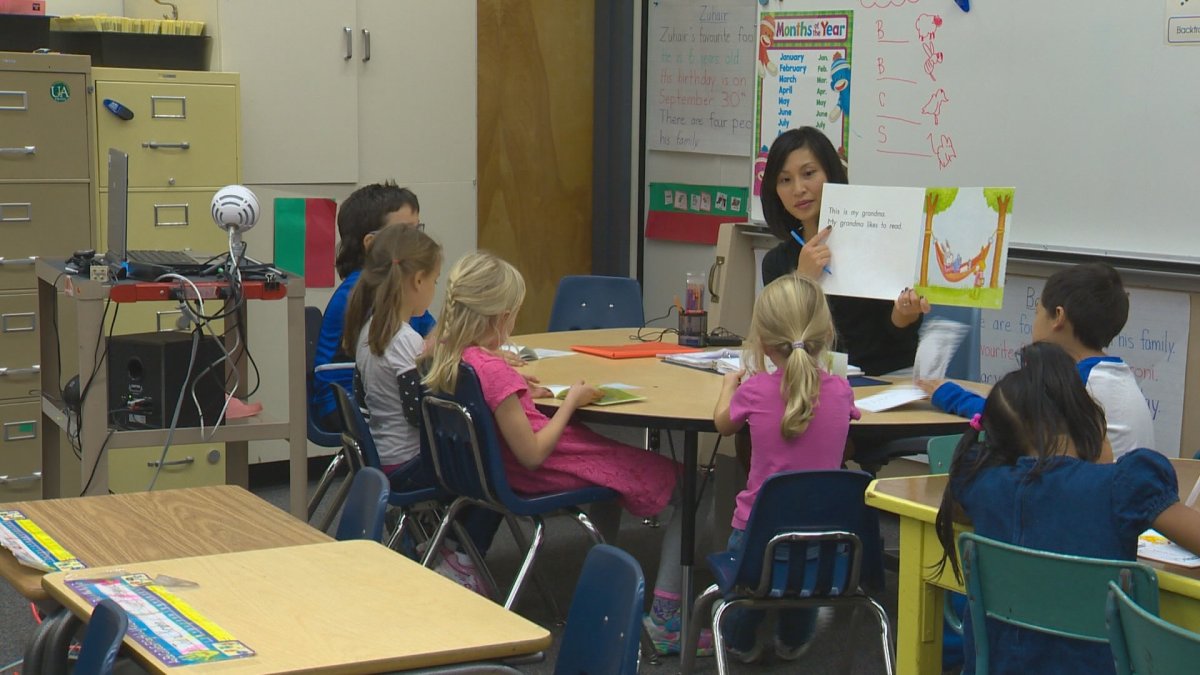The council to improve classroom conditions – part of the legislated contract imposed on Nova Scotia’s 9,300 teachers – has been formed.

READ MORE: Hundreds of teachers apply for classroom conditions council
A total of nine teachers were selected from the 779 who applied for a spot at the table, according to a government news release.
School board superintendents chose the teachers after working with board staff to make the selections.
The government said it chose a student, parent and a guidance counsellor to sit as its appointees. The final two spots are being filled by representatives from the Education Department and the Nova Scotia Teachers Union (NSTU), who will co-chair the council.
The council is being created as part of the teachers contract that was passed by the government two weeks ago. The NSTU fought against the contract and expressed their disapproval for the government’s version of the working conditions council. During previous negotiations, a council with more union involvement was agreed to by the NSTU.
The government legislated the contract, also known as Bill 75, after teachers rejected three tentative agreements.
The council members are:
- Sean Barker, Antigonish Education Centre
- Mélanie Belliveau, École Acadienne de Pomquet, Antigonish County
- Cheryl Bourque-Wells, Drumlin Heights Consolidated School, Argyle, Yarmouth Co.
- Elizabeth Brideau-Clark, Bayview Community School, Mahone Bay
- Melanie Morrissey, Bible Hill Junior High School, Colchester County
- Michael Cosgrove, Dartmouth High School
- Reagan O’Hara, Avon View High School, Windsor
- Kerri Lynn Power, Memorial High School, Sydney Mines
- Rachel Ross-Mantley, Central Spryfield Elementary
- Myles Fox, Grade 10 student at Cobequid Educational Centre, Truro
- Amy MacKinnon, parent, Shelburne County
- Pamela Doyle, guidance counsellor at Lockview High School, Fall River
- Joan Ling, Nova Scotia Teachers Union executive director, and council co-chair
- Sandra McKenzie, deputy minister of Education and Early Childhood Development and council co-chair.
Using $20 million allotted for the council over two years, the members will look at how to address issues raised by teachers with a number of priority issues, including data collection and reporting, a student discipline policy, PowerSchool and Technology for Improving Education Network (TIENET), and student success planning.
WATCH: Intramural sports, clubs, concerts, plays and more could be cut from school life as Nova Scotia’s teachers adjust to a contract imposed on them through legislation. Global’s Marieke Walsh explains.

Education Minister Karen Casey said in the release the council was a first for Nova Scotia.
“It reflects the perspectives of those most involved in the education system – teachers, parents and students,” Casey said. “Meaningful change cannot happen without their input and guidance.”
NSTU president Liette Doucet said in a release she’s “confident” those selected will “work hard on the behalf of their colleagues and students.” However, she said she still has concerns about the council and how it will proceed.
“We continue to have questions about how this council will operate moving forward,” Doucet said. “Will the meetings be held in public? Will the meeting minutes be published? If a member disagrees with a decision of the council, will there be a mechanism to register a dissenting opinion?”
READ MORE: Nova Scotians critical of Liberals in teachers dispute, OK’d legislated contract: poll
According a news release last week, a “neutral facilitator” will be chosen by the co-chairs of the council and an independent arbitrator can be appointed if parties can’t reach an agreement. The arbitrator was an amendment proposed by the NDP during debate for the teachers contract.
The first meeting by the council is expected to be held by March 21 with first recommendations set to come by April 28.
- Canadian man dies during Texas Ironman event. His widow wants answers as to why
- ‘Shock and disbelief’ after Manitoba school trustee’s Indigenous comments
- Several baby products have been recalled by Health Canada. Here’s the list
- ‘Sciatica was gone’: hospital performs robot-assisted spinal surgery in Canadian first




Comments